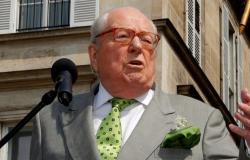The famous French satirical magazine Charlie Hebdo is preparing to release a special issue next week, commemorating the tenth anniversary of theterrorist attack which hit its editorial staff and caused a shock wave on a global scale.
Twelve people died during this unprecedented assault, which actually continued two days later with a deadly hostage-taking in a kosher supermarket at the hands of another jihadist, a sympathizer of the two brothers responsible for the attack on Charlie Hebdo.
Since this tragic event, the magazine has continued to publish, even if its reduced team of cartoonists and journalists operate under high security.
When the Kouachi brothers left the Charlie Hebdo premises on January 7, 2015 after shooting innocent people, they shouted: “We killed Charlie Hebdo!”
But the publication's editor-in-chief, Gérard Biard, immediately retorted during a recent interview with AFP: “They did not kill Charlie Hebdo”.
Following the attack, the magazine experienced dazzling sales success. Eight million copies were sold just after the tragedy, and it now has around 30,000 subscribers and 20,000 newsstand sales.
Archive image. A sign displaying the slogan “Je suis Charlie” during a candlelight vigil in the Old Port of Marseille, January 7, 2015,
Photo :Anne-Christine POUJOULAT / AFP
However, the magazine founded in 1970 by a group of anarchist humorists has also attracted criticism, notably from certain left-wing intellectuals and political leaders, who accuse him of maintaining a satirical tone deemed Islamophobic.
A year ago, Charlie Hebdo published cartoons targeting Iran's supreme leader, Ali Khamenei, which caused its commercial site to be hacked shortly after.
A caricature competition on God to appear in Charlie Hebdo
To commemorate the tenth anniversary of the attacks, Charlie Hebdo will publish online this Sunday the results of a caricature competition on God, launched last November.
A special issue of the magazine will be on sale on Tuesday January 7.
This initiative aims to assert the right to freedom of expression “for all those who are tired of living in a society dominated by God and religion,” say the organizers.
President Emmanuel Macron and the mayor of Paris, Anne Hidalgo, will participate in commemorative ceremonies in the different locations of the jihadist attacks of January 2015.
“The irresponsible”: a critical work on the “cowardice” of the French state in the face of the “Islamist threat”
“We can absolutely not appreciate Charlie Hebdo's drawings, its humor, its provocations or the ideas of its journalists. But 'being Charlie' ten years ago meant refusing to allow men and women to lose their lives to express their convictions“, explained Éric Delbecque, former security director of the magazine, during an interview published in Le Figaro.
Ten years ago, the killings began on January 7 with the attack on the satirical magazine Charlie Hebdo in Paris.
Photo :iStock
In his new book “Les irresponsables”, Delbecque denounces what he considers to be the “cowardice” of the State and decision-makers in the face of the Islamist threat.
The attacks on Charlie Hebdo marked the start of a series of attacks in France. On November 13, 2015, the Bataclan concert hall and several Parisian bars and restaurants were the target of attacks, causing 130 victims.
Most recently, on December 23, a court convicted eight people for their involvement in the assassination of college professor Samuel Paty in 2020.
Paty had shown caricatures of Muhammad published by Charlie Hebdo in class, which triggered a “hate campaign” leading to his murder, the court recalled.
Faced with pressure from conservatives and religious associations, who have often attacked Charlie Hebdo since the 1970s for its irreverent tone, the threats now come from civil society, notably religious groups, according to historian Christian Delporte in the columns of World.
“Today, it is associations, in particular religious but not only, which exert organized pressure in favor of the censorship of freedoms,” explains Delporte in an interview published this Friday.
Beyond the commemorative aspect, this article raises essential questions about freedom of expression and the responsibility that results from it. How do modern societies find a balance between humorous provocation and respect for beliefs? This question remains burning today and requires in-depth reflection.
Our editors use AI to help them deliver fresh items from trusted sources to our users. If you find any image or content that is inappropriate, please contact us via DMCA form and we will promptly remove it. / Our editors use AI to help them offer our readers fresh articles from reliable sources. If you find an image or content inappropriate, please contact us via the DMCA form and we’ll remove it promptly.
- -





